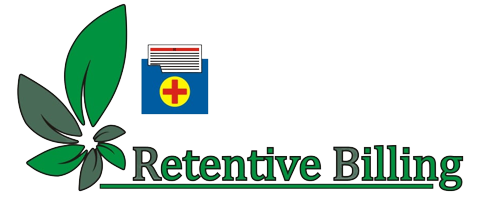Retentive Billing, a California-based back-office support company specializing in medical billing for dentists, emerges as a pivotal player in enhancing the financial well-being of dental practices.
Understanding the Dental Billing Process
The dental billing process involves navigating through insurance claims and billing patients, acting as the lifeblood of a practice’s revenue stream. According to Malkin (2014), these processes contribute to the overall financial health of the practice. However, challenges arise in the absence of skilled medical billing experts, leading to potential revenue declines. Retentive Billing steps in to address this gap, emphasizing the importance of precise and efficient dental billing.
The Core of Dental Revenue: Medical Billing
Medical billing serves as the linchpin of the dental revenue cycle, ensuring timely and accurate compensation for services rendered (Erickson et al., 2020). As per Lee et al. (2012), the dental industry has experienced a significant revenue decline, emphasizing the urgent need for expert medical billing services. Retentive Billing aims to streamline the dental billing process, providing a robust solution to counteract potential economic challenges.
The Retentive Billing Advantage: Top 10 Benefits
- Treat More Patients: By outsourcing billing and revenue cycle management activities, dental practitioners can focus on patient care, ensuring excellent service without being burdened by administrative tasks (Burt and Eklund, 2005).
- Sets the Dental Practice Apart: Collaboration with Retentive Billing ensures that dental clinics stay up-to-date with evolving medical billing codes and insurance policies, setting them apart in the competitive landscape (Henzi et al., 2006).
- Reduced Billing Errors: Skilled medical billers at Retentive Billing guarantee accurate and timely claims submission, reducing billing errors and associated costs (Fisher and Connelly, 2017).
- Add More Medically-Necessary Services: Offering medical billing in dental practices expands the range of covered services, allowing patients to save on dental expenses and keeping the clinic competitive (Murrin, 2015).
- Secure Patient Data: Retentive Billing ensures the secure transmission of sensitive patient information, promoting patient satisfaction and retention (Kamagahara et al., 2016).
- Improved Cash Flow: Outsourcing dental claims to Retentive Billing prevents revenue loss from denied claims, ensuring a consistent flow of funds into the practice (Mertz, 2016).
- Improved Efficiency and Accountability: Automation of the billing process by Retentive Billing leads to increased efficiency, allowing dental staff to focus on patient care and satisfaction (Brown et al., 2010).
Conclusion
In the pursuit of financial wellness for dental practices, Retentive Billing stands out as a reliable partner, offering medical billing for dentists tailored for the unique needs. By leveraging the Retentive Billing advantage, dental clinics can navigate the complexities of the billing process, ensuring economic stability and fostering growth
